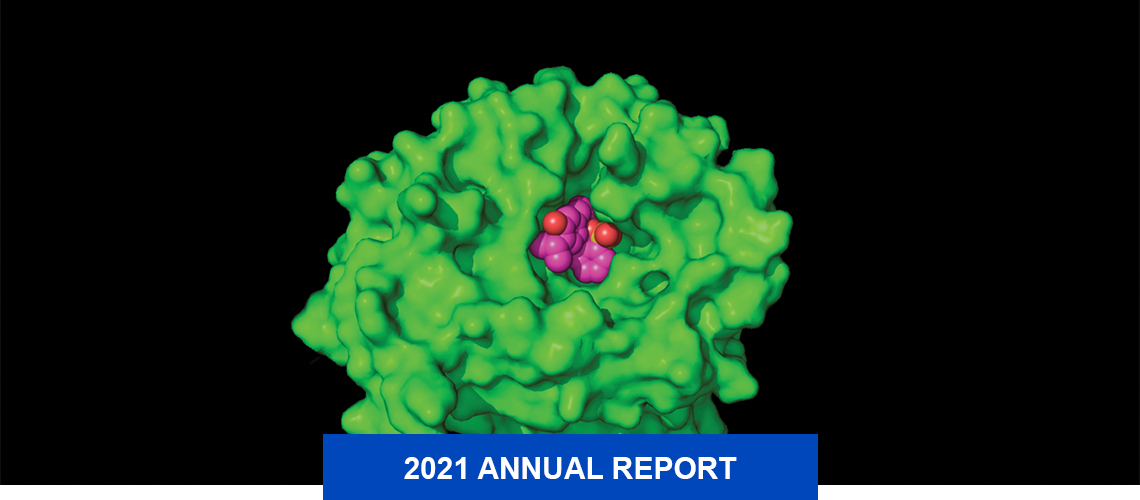
About the Header
Researchers are not waiting for the next pandemic to begin before seeking ways to stop it. SwRI leveraged its Rhodium™ drug discovery software to screen thousands of chemicals that could bind with and thwart Nipah, a potential pathogen.
Southwest Research Institute supports the health care industry, developing biomaterials and pharmaceuticals and supporting product evaluation and food safety studies.
SwRI’s analytical chemists worked with several academic institutions, processing fast food samples looking for plasticizers known as phthalates. Most of the samples contained these chemicals, which are linked to health problems, including endocrine system disruption and reproductive issues, as well as learning, attention and behavioral disorders in children.
Leveraging more than 70 years of expertise in microencapsulation, SwRI is developing controlled release and targeted drug delivery technology, including subdermal implants. Using hot melt extrusion, we have developed a flexible delivery platform by mixing a drug or other active ingredient with a binder to produce a rod-like device that can be inserted just below the skin. Drug-eluting implants offer efficient, effective controlled release of pharmaceuticals that enhance patient compliance. SwRI has helped develop implants to treat opioid addiction, chronic pain, dry itchy skin, and Parkinson’s disease and to protect against malaria and relapse following opioid detoxification.
SwRI continues to evaluate and develop treatments for COVID-19 and other infectious diseases. Medicinal chemists have identified multiple therapeutic candidates using virtual screening and synthesized chemical derivatives with greater potency and less toxicity. Laboratory tests have demonstrated improvements by a factor of ten in potency against multiple virus strains. The antiviral efficacy of these candidates against COVID-19 in animal models is under evaluation at Texas Biomedical Research Institute.
SwRI’s microbiological laboratories have several ongoing projects in the areas of toxin detection, microbial-influenced corrosion, environmental simulation and antimicrobial textile and surface studies. For instance, SwRI microbiologists recently evaluated the design, function, operation and performance of a toxin detector using Centers for Disease Control permissible levels of ricin and botulinum toxins, providing the client with critical feedback on the detector’s operation as well as suggested modifications.
SwRI microbiologists performed multiphase laboratory testing to evaluate the antimicrobial properties of various products, such as textiles. They also investigated unique antibacterial coatings for implants designed to enhance surgical site healing and infection control. The staff compared coated implants against control samples, such as bare titanium.
